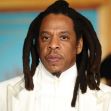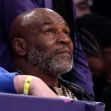Sexual assault cases are growing steadily, with RAINN reporting every sixty-eight seconds, an American is sexually assaulted. Among these reported horrific sexual assaults are numerous lawsuits made against celebrities.
Traditionally, accusers are not always named in court papers in some circumstances if it protects them from further harassment or harm to remain anonymous. However, it is the norm for complaints in cases to include the names of the accusers and the accused.
U.S. Judges face the daunting task of balancing an accuser's request for remaining anonymous against the long-held tradition of keeping courts open and offering substantial fairness to the accused. Allowing defendants to create a powerful defense may be rooted in knowing who the accusers are by name since attorneys seek to investigate the plaintiffs, timelines, etc.
Last year, acclaimed actor Kevin Spacey joined a long list of celebrities accused of sexual assault or misconduct, including comedian Louis C.K, actor Jeremy Piven, movie producer Harvey Weinstein, actor Steven Seagal, Def Jam Records mogul Russell Simmons, actor Tom Sizemore, and many more.
A man was accusing Spacey of sexual assault by the actor in the 1980s when he was fourteen. In 2020, the plaintiff filed a lawsuit against Spacey and sought to keep his identity hidden, calling himself "C.D."
However, the Southern District of New York Judge Lewis A. Kaplan ruled that "C.D." could not remain anonymous and must identify himself to the public if he wished to proceed with his lawsuit and trial.
In response, attorneys for "C.D." told the judge in a letter that the plaintiff won't allow his identity to be made public.
The "sudden unwanted attention that revelation of his identity will cause is simply too much to bear," wrote the attorneys. The attorneys may pursue an appeal.
In the same lawsuit, a fellow plaintiff will allow his identity to be shared with the public.
Across the U.S., in cases involving celebrities and athletes, judges are weighing the slippery slope of allowing plaintiffs to remain anonymous versus the accused's rights to have a fair and open court where they defend themselves.
Twenty-two women are suing Houston Texans quarterback Deshaun Watson in two separate hearings for sexual assault and misconduct. Judge Dedra Davis of the 270th district court ruled in one case as Judge Rabeea Sultan Collier of the 113th court held a hearing about a dozen other women in the case where one woman did allow her name to be made public.
The two Harris County, Texas judges informed thirteen of the twenty-two total accusers that they must resubmit their civil lawsuits with their identities included to participate in the trial. Many of the plaintiffs have so far decided not to resubmit their civil suits with their identities exposed, though they still have time to agree to the judges' conditions.
Rusty Hardin, the attorney for the accused sports celebrity Watson, said not sharing the accusers' names in the lawsuit has hurt his investigation against the numerous allegations. Hardin filed a successful motion in an emergency meeting with the judge requesting the accusers be identified in court papers.
Hardin said the anonymity of the plaintiffs violates Texas Law and the court's fairness for the accused and singled out Anthony Buzbee, one of the attorneys in the lawsuits, in his statements.
"We have said this before and we want to say it again: Deshaun did not force, coerce or intimidate anyone to do anything against their will," said Hardin. "When we asked Mr. Buzbee to identify his clients weeks ago, he refused and told us to file a motion. Today we filed that motion. As discussed in our filing, Mr. Buzbee's use of anonymous lawsuits violates Texas law and the basic concept of fairness. It is clear that, for Mr. Buzbee, this case has never been about seeking justice in a courtroom, but destroying Deshaun's reputation to enhance his own public profile and enrich himself. While I understand that anonymity often is used as a shield for victims, Mr. Buzbee is using it as a sword. While shielding his clients from public scrutiny, Mr. Buzbee continues to use their anonymous allegations to destroy Mr. Watson. This is simply not right. And we look forward to resolving these matters in court."
In 2020, a New York judge would not allow an accuser in one of the numerous sexual assault cases against Harvey Weinstein to remain anonymous. The case was withdrawn.






